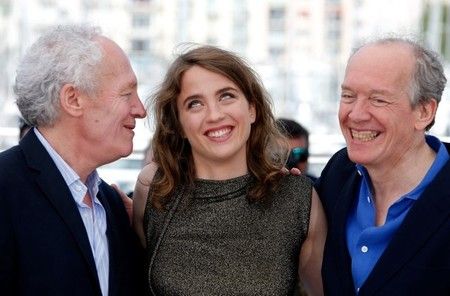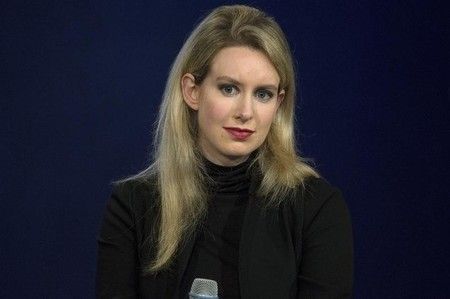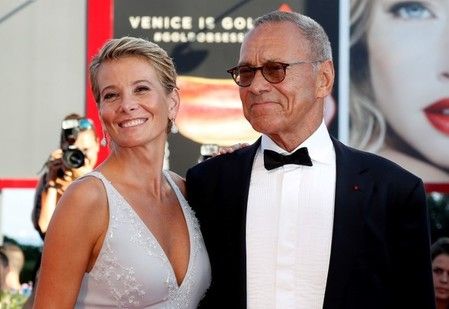Advertisement
Cannes favorites Dardenne brothers to stick to social genre

By Julien Pretot
CANNES, France (Reuters) – The Belgian Dardenne brothers, whose latest film “The Unknown Girl” premiered at the Cannes Film Festival this week, say they plan to stick with their trademark social genre, digging for material “Like in a coal mine”.
In the directors’ 10th feature film, a doctor, Jenny Davin, tries to identify a teenage girl who was killed just outside her practice.
She starts out feeling driven by guilt and an intense sense of responsibility, having ignored the doorbell that night because it had rung an hour after she had closed the office. As she investigates the case, it becomes clear she is the only one interested in finding out the truth.
The Dardennes, Jean-Pierre and Luc, have already won the Palme d’Or in Cannes twice playing the social cord, in 1999 with “Rosetta”, the story of a teenager who lives in a trailer park with her alcoholic lover, and in 2005 with “Two Days, One Night”, following a young mother who fights for her job in a solar-panel factory.
In 2011, “The Kid with a Bike” also won the Jury Prize in Cannes.
While their northern France neighbor Bruno Dumont, who also started by focusing on social issues, turned to comedy with “Ma Loute” in Cannes, the Dardennes won’t flinch.
“He’s a creator who goes from a genre to another, at some point he went elsewhere. It’s not our case,” Luc told Reuters in an interview on Friday.
“We’re the kind of directors who dig, we’re like in a coal mine, said Jean-Pierre. “We don’t have the feeling that we are reaching the end (of this genre),” Luc added.
MORAL RESPONSIBILITY
The Dardennes usually focus on a central character and after Emilie Dequesne played Rosetta and Marion Cotillard played Sandra in “Two Days One Night”, double Cesar winner Adele Haenel, 27, was an impressive Jenny in “The Unknown Girl”.
“We’re interested in individuals, in details, in ordinary things to, hopefully, make something extra-ordinary of them, at least to widen the scope,” said Luc Dardenne.
“But we’re really staying with this suburban doctor who refuses to become richer by changing practice because she wants to stay where she is to find out the identity of this unknown girl. That’s what we’re interested in, the moral responsibility that Jenny feels.”
“It’s not the kind of role what I used to play. I usually play angry characters, there’s often a lot of yelling,” Haenel told Reuters.
Just like Jenny understands she should have let the unknown girl in, Haenel believes there is a lesson to be learnt. If you don’t care for others, then you can blight your own life.
“If you live without it, without this revelation that you can’t do without the others, and that others are important and that you must give them space near you, there is some rotten air in your head.”
(Reporting by Julien Pretot; Editing by Ralph Boulton)











